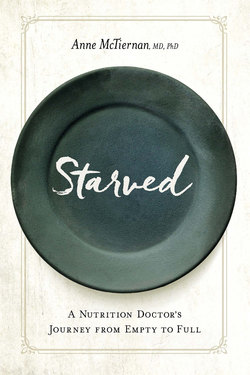Читать книгу Starved - Anne McTiernan - Страница 9
На сайте Литреса книга снята с продажи.
ОглавлениеAUTHOR’S NOTE
Four and a half decades have passed since I left home. I married early and well, and my husband and I have two daughters and several grandchildren. Along the way, I collected several academic degrees—too many probably—which led me to my career as a medical doctor and researcher. Throughout my career, my personal experiences have shaped my passion for research.
This book is a memoir, and as such, reflects my recollection of events during my life. I reconstructed conversations from my memory, which may differ from other people’s memories. In some cases, especially when recounting scenes from my early childhood, I created dialogue to support the narrative. The names and characteristics of my immediate family are real, but I changed the names and physical characteristics of many other people in the book to preserve their privacy.
The Obesity Society, whose mission is to advance the science-based understanding of the causes, consequences, prevention, and treatment of obesity, recommends that physicians and researchers use “people first” language. That is, they recommend that we refer to “persons with obesity” rather than “obese persons.” This helps create positive, productive discussions about weight and health, reduces chance of bias against persons with obesity, and underscores the medical community’s classification of obesity as a disease rather than as a failing.
As a child and early teenager, I was labeled as “fat” and other derogatory terms. I thought of myself as a fat kid, and that made me inherently ugly, undesirable, and a failure. In this memoir, I have chosen to use those terms to show my own experience with weight bias. However, I fully support the Obesity Society’s position on working to reduce the use of pejorative words to describe individuals with weight issues or obesity.
